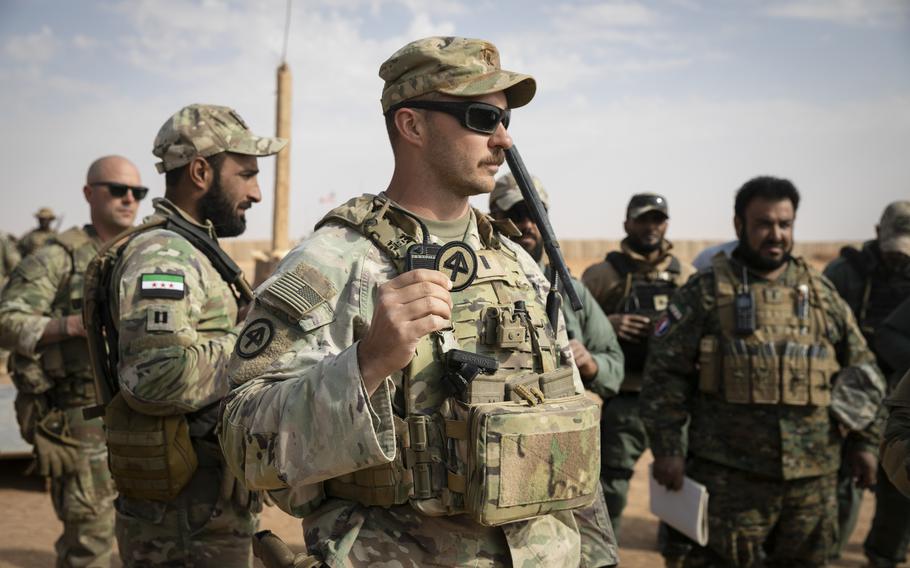
Army 1st Lt. Michael Wisniewski stands with other troops near al-Tanf garrison in Syria on Oct. 31, 2024. (Mahsima Alkamooneh/Army photo)
WASHINGTON — The U.S. had more than doubled the number of American troops in Syria to counter the Islamic State group before the fall of former President Bashar al-Assad’s government almost two weeks ago, the Pentagon said Thursday.
“These additional forces are considered temporary rotational forces that deployed to meet shifting mission requirements,” said Air Force Maj. Gen. Pat Ryder, the top Pentagon spokesman.
The U.S. now has 2,000 troops in Syria as part of an American-led coalition in that country and Iraq working to prevent a resurgence of ISIS. The Pentagon has reported since at least 2021 that 900 U.S. service members and an undisclosed number of contractors are operating in Syria, where they support local Kurdish forces. An additional 2,500 American troops are in Iraq.
The Pentagon had been asked in recent days and weeks about U.S. forces in Syria but the increase was never disclosed. Ryder said the additional forces had been in Syria “at a minimum months — it’s been going on for a while.”
He said Army conventional and special operations forces make up the bulk of the additional troops.
The 13-year civil war in Syria reignited two weeks ago as rebel forces led by the militant group Hayat Tahrir al-Sham, or HTS, launched an attack on the city of Aleppo and moved into the countryside around Idlib. Rebel forces overthrew Assad at the time.
U.S. bases in the Middle East have been prone to attacks since the surprise attack in October 2023 by Hamas militants on Israel. The Pentagon recently said U.S. forces had been fired upon 125 times in Syria and 79 times in Iraq since the Hamas attack.
The U.S. has stepped up airstrikes against ISIS targets in Syria in the wake of Assad’s fall from power.
President-elect Donald Trump tried to withdraw U.S. forces from Syria during his first term, which drove former Defense Secretary Jim Mattis to resign in protest. As Trump prepares to return to the White House, he has said he does not support U.S. forces getting more involved in Syria, The Associated Press reported.
“Right now, we have no plans to cease the de-ISIS mission,” Ryder said.